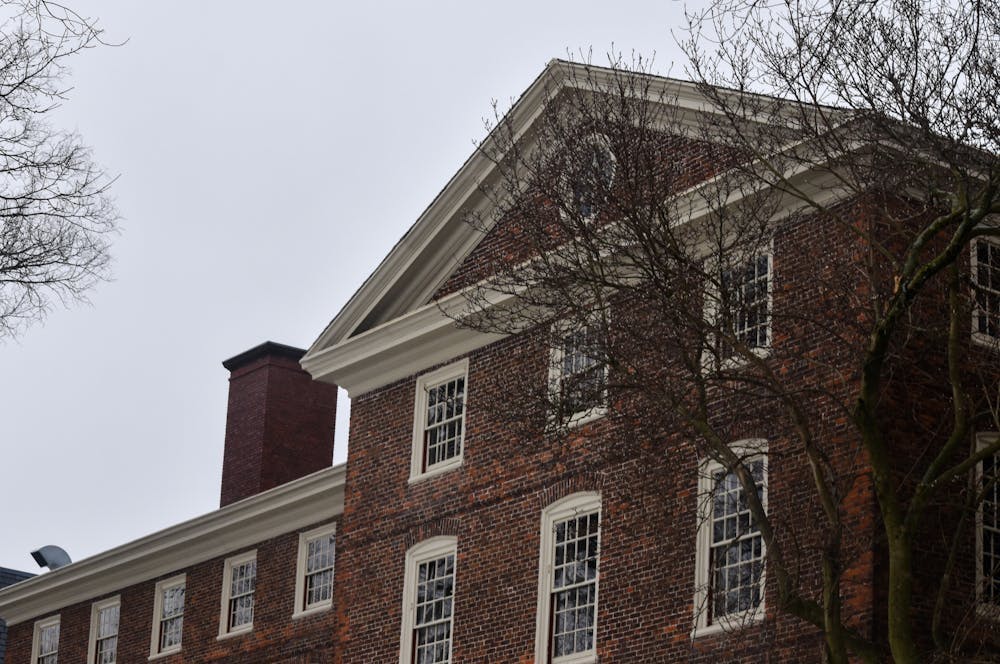As of fall 2023, linguistics functions as an independent program from the Cognitive, Linguistic and Psychological Sciences department, according to the CLPS website. Previously, linguistics was one of five concentrations — along with behavioral decision sciences, cognitive neuroscience, cognitive science and psychology — within the CLPS department.
Increased independence from the CLPS department has already allowed the program — which houses the linguistics undergraduate concentration — to offer six new linguistics courses and hire two new faculty members this year alone, according to Professor of Linguistics Pauline Jacobson.
Jacobson said she looks forward to watching the program expand in the near future and hopefully be able to thoroughly cover topics like sociolinguistics, syntax, morphology and historical linguistics.
CLPS 0340: “Language and Gender” and CLPS 1311: “Phonetics,” taught by Visiting Assistant Professor Jaime Benheim, are among the new course offerings this fall. Postdoctoral Research Associate Chaya Nove is also teaching CLPS 1365: “Historical Linguistics” this semester.
Starting this academic year, CLPS 0300: “Introduction to Linguistics” will be taught during both the fall and spring semesters — clearing a significant “bottleneck” among potential concentrators, said Scott AnderBois, director of the Linguistics program.
Beginning summer 2024, linguistics courses will also be marked with a new “LING” course code, a decision intended to make it easier for prospective concentrators to find courses of interest.
Though the University's linguistics program was originally founded as a separate department, it was merged into the broader CLPS department in 2010. The decision to split linguistics from CLPS is a result of an external review of the department conducted last December, which ultimately supported the separation, according to Jacobson.
When making their case for the split, Jacobson and AnderBois looked at peer institutions and noticed that most other Ivy League universities — as well as schools like the University of Chicago and Stanford University — had larger, independent linguistics departments.
“The governance model for CLPS wasn't working for linguistics,” AnderBois said. “It didn't give us enough autonomy to strategically plan for what linguistics needs, or to make the case for the resources we needed to be on par with our peer institutions.”
According to David Badre, chair of the CLPS department, the linguistics faculty within CLPS developed a vision for the program that was “distinct from the broader department mission.” As a result, the department “agreed that an independent linguistics (program) would be a positive step for both groups moving forward,” Badre wrote in an email to The Herald.
“We look forward to what the future holds for both Linguistics and CLPS,” Badre wrote, adding that “CLPS will continue to focus on the interdisciplinary study of mind, brain and behavior, including the psychology and cognitive science of language.”
Under the CLPS department, linguistics courses and research skewed toward psycholinguistics and cognitive science “to the exclusion of other fields,” AnderBois said. But in an inherently interdisciplinary field like linguistics, the ability to make cross-departmental connections is vital, according to Jacobson.
“It's this completely human discipline that still lends itself to the scientific method,” she added. “That mixing of formal scientific methods with this incredibly humanistic domain — it's really a field that should play a prominent role in any liberal arts education.”
Masako Fidler, professor of Slavic Languages, recalled previously working with a student who wanted to write an honors thesis on language policy connecting concepts within political science and linguistics.
“At that time, the linguistics program was embedded within CLPS, so the scope of the program was” limited, Fidler said, adding that it was thus “impossible” for the student to write an honors thesis.
Fidler, who is part of the linguistics secondary faculty, said she is looking forward to the program’s potential for cross-departmental collaboration.
“The program is becoming more diverse and inclusive,” she said, pointing to the program’s affiliate faculty roster, which includes faculty in anthropology, philosophy, computer science, education, Native American and Indigenous studies and French and Francophone studies.
Prospective linguistics concentrators hoping to gain exposure to the program can look forward to the Brown Undergraduate Linguistics Event on Nov. 4, where students will present previous linguistics research they’ve done, said Ariel Stein ’24, one of the linguistics departmental undergraduate group leaders.
There will also be smaller events throughout the semester called “Curried Functions” — a spin on the computational linguistic technique of currying a function — intended to promote a sense of community for linguistics students and faculty, Stein said.
“We're just really excited for where we're at,” AnderBois said. “We’re excited for the opportunity to share linguistics with the Brown community — strengthen all these existing connections, build new connections across the University and bring folks together through language.”

Anisha Kumar is the senior editor of community and standards of The Herald's 135th editorial board. She previously served as a section editor covering University Hall and international student life. She is a junior from Menlo Park, California concentrating in English and Political Science who loves speed-crosswording and rewatching sitcoms.





